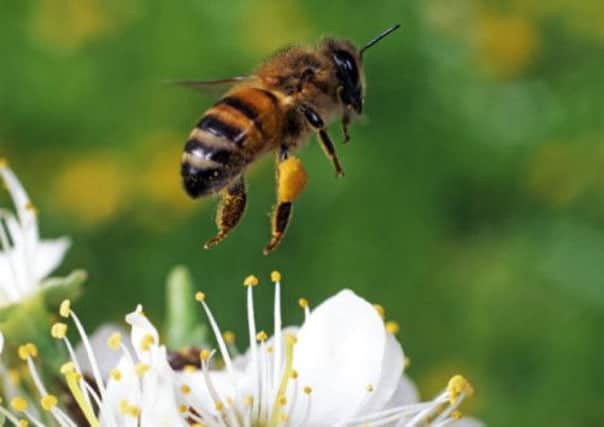‘Public can plant to save bees’


Academic researchers have discovered that the county supports an important population of tormentil mining bees. This small black bee has pale hair on its thorax and white bands on its abdomen and is estimated to have disappeared completely from 50 per cent of sites in the UK since 1970.
According to a report by the University of Reading, the species has been observed to be thriving at Allerthorpe Common, Harden Moor, Pompocali, Rossington Bridge and Seckar in Yorkshire. It is attracted by specific plants including tormentil, yarrow, ling heather, harebell and bramble.
Advertisement
Hide AdAdvertisement
Hide AdThe plight of the tormentil mining bee is part of a national decline in UK bee populations. Twenty species of bee have been lost since 1900 and a 2012 study showed it would cost farmers £1.8bn a year to replace the pollination service bees provide for free.
Friends of the Earth are using the research to back its ‘Bee Cause’ campaign and is calling on bee-lovers in Yorkshire and the Humber to help reverse the fortunes of the iconic tormentil mining bee. Members are concerned that disease, chemicals and habitat loss are hindering their survival.
Campaigner Sandra Bell said: “The iconic tormentil mining bee is in real trouble. But people in Yorkshire can change all that with simple practical actions and by urging their MPs to play their part.”
The species is dependent on the pollen of the wildflower tormentil to feed its young and campaigners say the wildflower has been lost in many parts of the country as a result of intensified farming and urban development.
Advertisement
Hide AdAdvertisement
Hide AdFriends of the Earth want people to reverse the decline by planting bee-friendly flowers, raise bee decline with MPs and ask them to support a Bee Action Plan to be devised by the Government which would help farmers gardeners and park keepers reduce the use of chemicals that harm bees.
This week, Booths supermarket chain announced it would be selling a new range of bee friendly plants in stores at the end of May to raise awareness of the declining bee population, while the EU has announced a controversial two-year ban on the use of pesticides containing neonicotinoid to protect flowering crops and pollinators that rely on them.